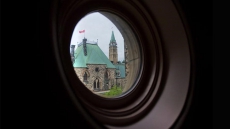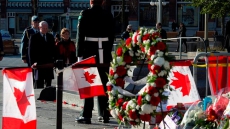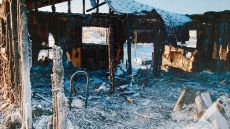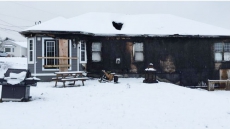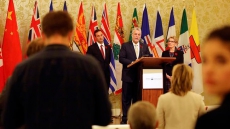OTTAWA — The Canadian Security Intelligence Service has been left in the dark about the legality of tracking Canadian terror suspects overseas, the federal government is telling the Supreme Court.
In arguments filed with the high court, the government says CSIS needs "certainty" as to how it can monitor possible Canadian extremists who venture abroad.
Federal lawyers are asking the Supreme Court to settle the matter, saying lower courts made "significant errors" in dealing with this "highly sensitive area."
Security agencies are feverishly investigating radicalized Canadians who head overseas with the aim of joining Islamic extremists. Officials fear battle-hardened jihadis could return to Canada to plot attacks.
At issue is what legal steps must be taken to enlist Canada's closest allies to help with foreign tracking of Canadians, and how forthcoming CSIS must be with federal judges when seeking such powers.
"In the struggle against terrorism, Canada must pay close attention to the threatening activities of its own citizens, wherever they may be," says the federal brief filed in the Supreme Court.
"Certainty as to how it can engage in that monitoring according to law is a matter of public importance."
The government submitted the arguments secretly in late September. They were unsealed recently following the release of the public version of a Federal Court of Appeal ruling in the long-running matter.
It could be weeks or even months before the Supreme Court decides whether to hear the case.
Meantime, the Conservatives have introduced legislation that would amend the CSIS Act by explicitly allowing the spy service to seek a warrant to investigate a security threat beyond Canada's borders.
However, Public Safety Minister Steven Blaney says the government still wants the Supreme Court to clarify "important questions of law."
In a pivotal late 2013 ruling, Federal Court Justice Richard Mosley criticized CSIS over a request for warrants to track two Canadians with technical help from the Communications Security Establishment Canada, the country's electronic spy agency.
Mosley said CSIS breached its duty of candour by failing to disclose that CSEC's foreign counterparts in the Five Eyes intelligence network could be called upon to help monitor the Canadians.
He also warned CSIS and CSEC were incurring the risk that Canadian targets "may be detained or otherwise harmed" as a result of the use of the intercepted communications by foreign agencies.
The Federal Court of Appeal upheld Mosley's judgment in a ruling handed down in July but made public in censored form just this month.
In its brief to the Supreme Court, the government says if CSIS and the attorney general are to be taken to task for a lack of candour, there must be clear guidance on the scope of disclosure required. "With respect, a legal basis for demanding such disclosure has not been shown, and no clear guidance has been given to prevent future misunderstandings."
The Court of Appeal declared that a warrant is required when CSIS — either directly or through the auspices of a foreign spy service — uses "intrusive" methods such as interception of telecommunications. It said such warrants could be issued when the interception "is lawful where it occurs."
Federal lawyers say they are left with many questions about what the appeal court meant.
"CSIS must be able to carry out its crucial role in gathering intelligence on threats to the security of Canada confident that they are acting within the law, and the public is also entitled to know what constraints are imposed on CSIS in this regard," says the federal submission.
It is expected that an amicus curiae, or friend of the court, will make opposing arguments in the application for a high court hearing. The amicus would continue in the role if the Supreme Court agrees to take the case.
The government says the case could generally be argued in an open hearing. However, some evidence might be filed in secret due to national security concerns. As a result, some proceedings may go behind closed doors at the request of the parties or the court itself.
